Protect Your Mental Health in a Digital World: Tips from Jay Shetty and Other Wellness Podcasters (Exclusive)
In honor of Mental Health Awareness Month, top podcasters like Jay Shetty and Laurie Santos share their advice on how to manage our online world
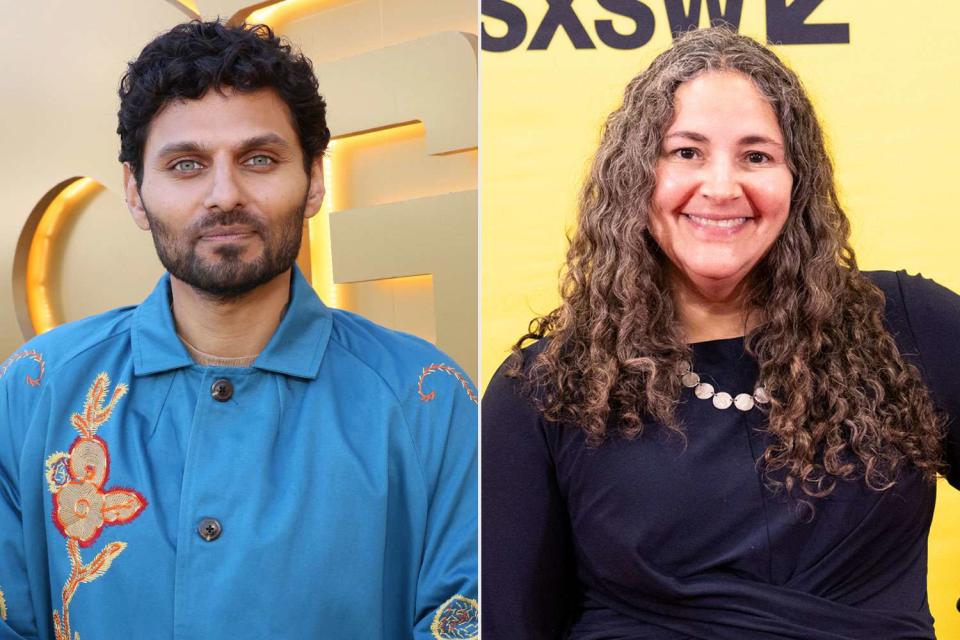
Rodin Eckenroth/Getty, Jason Bollenbacher/SXSW Conference & Festivals via Getty
From left: Jay Shetty, Dr. Laurie Santos.In honor of Mental Health Awareness Month, top podcasters are sharing advice on protecting your mental health in our increasingly digital world
At least 1 in 5 Americans is living with mental illness — and research shows that social media may be connected to anxiety and depression
Jay Shetty, Laurie Santos, Nedra Tawwab Glover and more top wellness podcasters offer advice on how to disconnect from the digital space
We're halfway through Mental Health Awareness Month, a program started in 1949 by Mental Health America to emphasizes the importance of mental health education and wellness. In the past few years, mental health content has dominated social media, as more people open up about their struggles.
And while social media can increase access to mental health care, it can also create its own pressures and problems. The National Alliance on Mental Illness says, "people who spend more time on social media and less time in personal interactions with others have an increased risk of feeling anxious and depressed."
Anxiety among Americans is so prevalent that last year, the influential U.S. Preventive Services Task Force recommended all adults be screened for anxiety by their doctors. And, at least 21 million adults in the United States have had at least one major depressive episode, according to the National Institute of Mental Health.
So how can you protect your mental health online in an exceedingly online world? Below, iHeartPodcasts' top mental health and wellness pros share advice on mindfulness and setting boundaries to preserve your mental health in our digital age.
Jay Shetty: Take a Mindful Minute
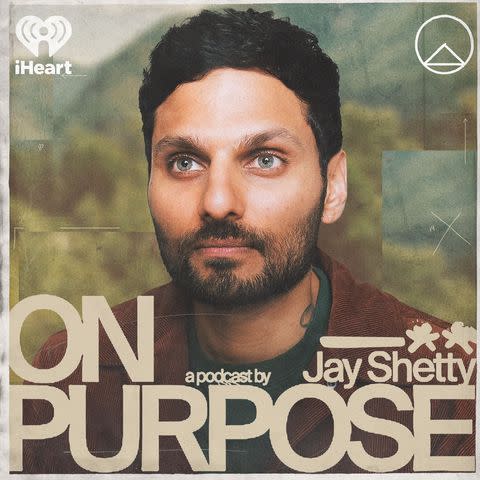
iHeart Radio
Jay Shetty.It starts with normalizing the practice of taking moments to prioritize our mental health, says Jay Shetty, host of On Purpose with Jay Shetty.
”When we find ourselves waiting in a line or otherwise have a few spare minutes, instead of mindlessly scrolling, it’s beneficial to have even just a mindful minute: Take five deep breaths," he says. "List three things you’re grateful for. Or send a friend or family member a quick text with a positive or encouraging message — even just an 'I love you!'"
Dr. Scott Barry Kaufman: Don't Compare Yourself to Others
“Whenever you are feeling like you need to protect your mental health, I suggest taking a pause from the social comparison game and recognize that personal meaning is what will lead you to a personally better life, not comparing your own life to others," says Dr. Scott Barry Kaufman, host of The Psychology Podcast.
"Seek out transcendent experiences, such as getting out in nature, going to a museum, helping a stranger, or calling your mother. Despite all the connections, social media paradoxically often makes us feel more isolated, whereas engaging meaningfully with your everyday life helps you feel a greater sense of connectedness with the world and other people.”
Radhi Devluki: Choose the Content You Consume
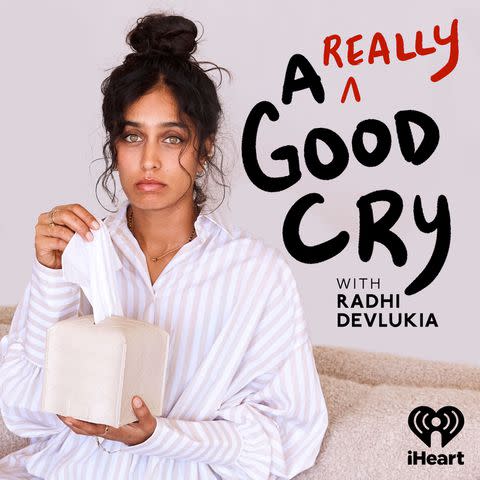
iHeart Radio
Radhi Devlukia, host of "A Really Good Cry"As Radhi Devlukia, host of A Really Good Cry, says, “Every single thing we allow into our senses affects our mind, from what we eat to what we hear and see. The algorithm will share more of what you watch, so type in the content you want to see more of and begin to curate what you scroll through."
She advises that you "choose things that uplift you, make you feel good about yourself and see others in a positive light. What you watch and hear becomes part of you and becomes the lens you see the rest of your day with.”
Never miss a story — sign up for PEOPLE's free daily newsletter to stay up-to-date on the best of what PEOPLE has to offer, from celebrity news to compelling human interest stories.
Jemma Sbeg: Step Away from Unheathy Social Media
Jemma Sbeg, host of The Psychology Of Your 20s, reminds users to set boundaries.
”I think people often think of boundaries as only applying to their in-person relationships. But we also need boundaries with ourselves around our social media consumption, usage and interactions. Set time limits for yourself, when you find yourself excessively comparing yourself to others or in a spiral."
She advises, "Switch off for an hour, or longer if you can. Unfollow accounts or people who make you view yourself negatively and when you see hate, like troll comments or people tearing others down, leave positivity."
Laurie Santos: Ask Yourself Why
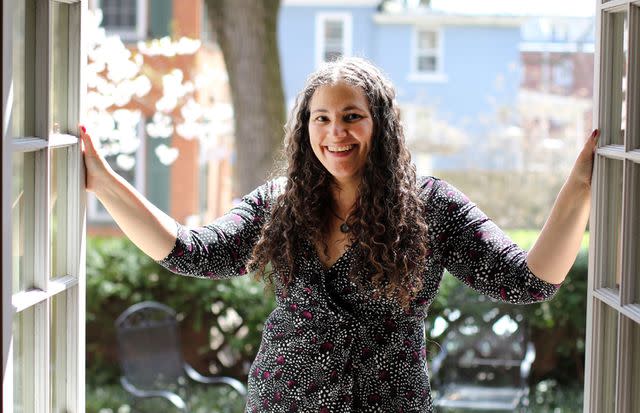
Stan Godlewski for The Washington Post via Getty
Dr. Laurie Santos, host of "The Happiness Lab"“One of my favorite strategies comes from one of my favorite guests on The Happiness Lab, author Catherine Price,” says the podcast’s host, Laurie Santos. “In her book, How to Break Up With Your Phone, she suggests a hack we can use to be more mindful with our technology, which goes by the acronym WWW— which stands for 'What for? Why now? What else?'"
As she explains, "Every time you notice yourself wasting time on a screen, ask yourself WWW — First: What for? What am I using my screen for right now? Then: Why now? What feelings caused me to pick up my phone? Finally: What else? What am I missing out on by using my phone? Practices like WWW can help you become a bit more mindful of what you are and aren't getting out of your phone use."
Related: Record 1 in 6 U.S. Adults Has Depression, Says Report
Nedra Tawwab Glover: Separate Public and Private Lives Online
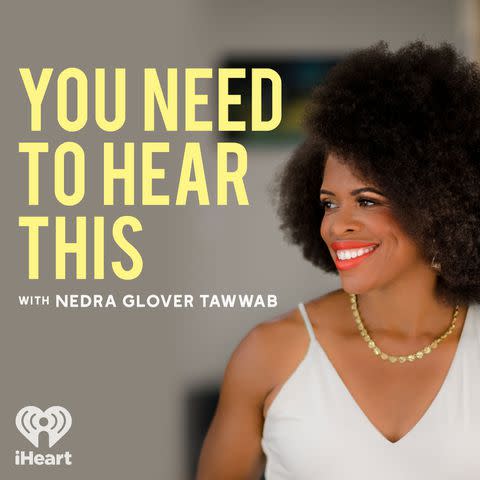
iHeart Radio
Nedra Tawwab Glover, host of the podcast, "You Need to Hear This"“We can separate our personal and professional lives online," says Nedra Tawwab Glover, host of You Need To Hear This. "We can choose not to follow or accept friend requests from co-workers or other acquaintances. Second, remember, it’s not just social media, it’s the people we follow."
"You have the freedom to curate your feed. If you’re not comfortable unfollowing someone, you can mute them and decide how you want to engage with their content. This autonomy can help you maintain a healthier digital space. Lastly, we can stop being constantly connected or start the day offline.”
Click here for more mental health podcasts from iHeart.
For more People news, make sure to sign up for our newsletter!
Read the original article on People.

 Yahoo Lifestyle
Yahoo Lifestyle 
